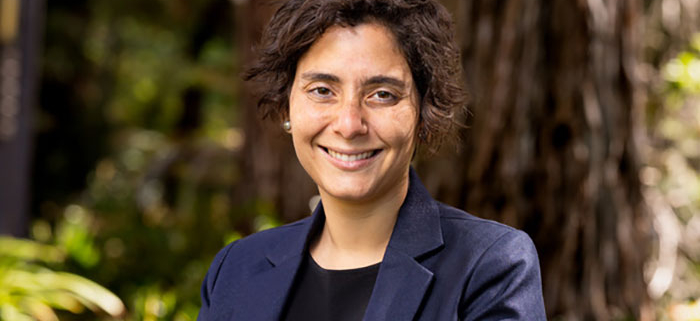UC Davis Researchers Awarded SEED Funding to Advance Research in Historically Underfunded Disciplines
The Office of Research is pleased to announce the recipients of the second cohort of the UC Davis Humanities and Social Sciences Stimulating Exceptional and Essential Discovery (SEED) Funding Program.
The awards support research activity in historically underfunded disciplines with a high likelihood of impact in the humanities and related social sciences.
A total of $70,000 (approx.) was awarded across seven faculty projects for the fiscal year 2024-2025.
“The Office of Research supports research, scholarship and creative activities across all disciplines, and these awards illustrate the breadth of impactful scholarship led by UC Davis faculty,” said Simon J. Atkinson, vice chancellor for research at UC Davis. “I would like to congratulate each of the SEED award recipients and look forward to seeing each advance their important work.”
Recipients of the 2025 SEED Funding Program
Alicia Rusoja
Assistant Professor of Education
Although Venezuelan migration into the U.S. has been steadily rising in recent decades, there is a dearth of research on the educational practices and experiences of these families in and out of K-16 educational institutions. The funding helps Rusoja advance an innovative, multi-year research initiative on the transnational educational practices and experiences of undocumented Venezuelan immigrants living in California. Knowledge about the educational practices and experiences of this rising immigrant group – and what shapes these, such as immigration status and transnational migration experiences – is fundamental to achieving educational equity, across PK-16 and community-education contexts. This knowledge is also critical to understanding how immigration policy impacts educational practices, experiences, policies and inequities.
Emily Vazquez Enriquez
Assistant Professor of Spanish
In her second book project, Undoing Borders, Enriquez will examine the cultural responses to the entanglements of human and nonhuman mobility in the context of climate displacement. Drawing from border and migration studies, animal studies, and ecocriticism, she examines how literature and art emphasize that climate migration is, inevitably, a multispecies phenomenon. Focusing on Central American, Mexican, and Indigenous literature and art, this SEED funded project asserts that by disrupting anthropocentric migration frameworks, these works open space for imagining more sustainable futures. In doing so, the book hopes to challenge dominant understandings of migration.
Ga Young Chung
Assistant Professor of Asian American Studies
Chung is working on her first book project—Unexpired: Race, Undocumented Immigrant Youth Time, and Imperial Futurity. There are 192,000 undocumented Korean immigrants in the United States, making them the nation’s eighth largest undocumented population. With this funding, she aims to conduct interviews with the activists regarding the current challenges they encounter with the cancellation of DACA (Deferred Action for Childhood Arrivals) and mass deportation under the new administration. The interviews will be conducted in Chicago, New York and Los Angeles between summer and early fall 2025. The funding would help Chung to add the latest challenges the undocumented immigrant youth activists encounter, which would be invaluable in ensuring future readers understand the predicament situation and resilience of the group more deeply.
Javier Arbona-Homar
Associate Professor of American Studies, Design
Through tentatively-titled Monumental Disappearance, a book-length experiment in intellectual writing, Arbona-Homar hopes to dismantle the legal concept of sovereignty by showing its myriad crises at several geopolitical scales of disappearance such as the disappearance of names of the deceased from memorials and archives, the disappearance of population in the wake of disasters and wars, and, the disappearance of coastal landscapes and communities due to sea level rise. The book aims to craft a political theory built out of the disaster-ridden remains of empires.
Jose Manuel Santillana Blanco
Assistant Professor of American Studies
Blanco’s book manuscript Racial Motherhood Ecologies examines and explores how Black, Brown, immigrant and Indigenous activist women andmothers in the Southwest Borderlands have fought against racialized ecological violence for over three decades. Utilizing oral histories, counter-storytelling, creative writing, and archival research, the manuscript attends to the unique histories, stories, and approaches of racialized communities as well as underlines the inter-relational points of overlap and promises for political alliances. With the funding, Blanco hopes to strengthen and extend the impact of his research by exploring how racialized and gendered subjects in lesser-known rural and urban locations identify, conceptualize, and transform the intersections of space, place, environment, and justice to combat multiple forms of violence on their bodies and communities.
Kory Ching
Associate Professor of University Writing Program
Ching’s project will investigate how artificial intelligence is reshaping academic writing practices in higher education through a human-centered lens. Drawing on sociocultural theories of literacy, the research examines how different members of the academic community conceptualize and use AI-assisted writing tools in their scholarly work. Through interviews, writing observations, and technology use diaries, the study will document AI’s transformation of traditional academic literacy practices. The research explores ethical considerations, impacts on knowledge production, and implications for writing pedagogy at a crucial moment in higher education. Findings will contribute to understanding how emerging technologies reshape scholarly practices and inform ethical frameworks for AI integration in academic writing.
Xian Jiang
Assistant Professor of Economics
Jiang’s research aims to inform policies promoting equitable and sustainable growth.
The team will examine how multinational firm entry into the U.S. affects local environmental outcomes, focusing on toxic chemical releases by domestic facilities. By using data, the team will analyze environmental spillovers and develop a novel classification system for water-related pollutants. Preliminary findings show multinational entry reduces local toxic releases, with potential heterogeneous effects across industries and disadvantaged communities. The funding will help integrate confidential U.S. Census data, exploring labor market and socioeconomic impacts.
Feature image caption: Alicia Rusoja, Assistant Professor of Education







